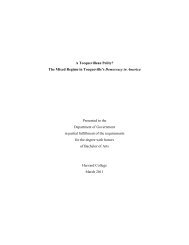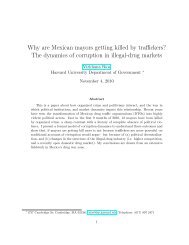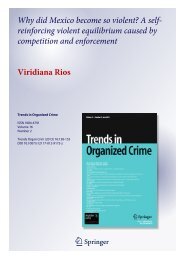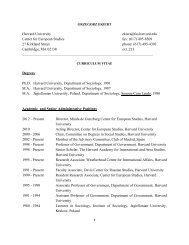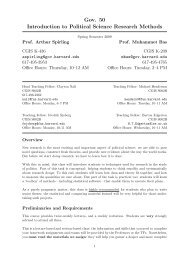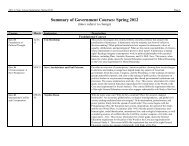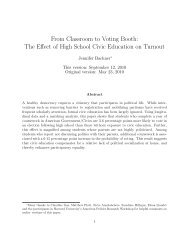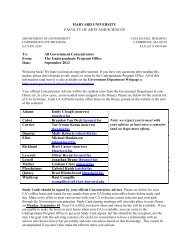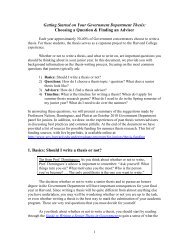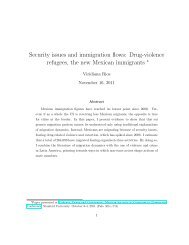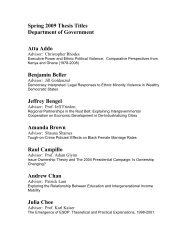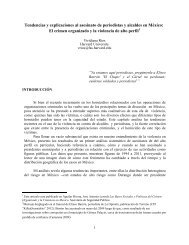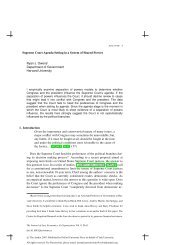1 Harvard University Political Theory Colloquium For 11 March 2010 ...
1 Harvard University Political Theory Colloquium For 11 March 2010 ...
1 Harvard University Political Theory Colloquium For 11 March 2010 ...
You also want an ePaper? Increase the reach of your titles
YUMPU automatically turns print PDFs into web optimized ePapers that Google loves.
9 <br />
means of the art of measurement, or incorrectly, when acting in ignorance. When reason<br />
exercises the ‘art’ or ‘knowledge’ of measurement, it is able to measure pleasures and<br />
pains correctly against one another, and so (for example) to pursue greater long-term<br />
benefits instead of lesser immediate ones (347a-c). It is this contention – that ‘those who<br />
make mistakes with regard to the choice of pleasure and pain…do so because of a lack of<br />
knowledge’, and specifically a lack of the knowledge of measurement – which is widely<br />
taken to constitute the ‘denial of akrasia’: not passion, but ignorance, explains the failure<br />
to act according to what knowledge would prescribe.<br />
My reading of the Protagoras and of the measure doctrine’s putative denial of<br />
akrasia hinges on three aspects of the surrounding text, which for convenience (though<br />
not entirely aptly, as noted in the next footnote) are labeled here as three frames. 10<br />
- The outer frame of the poetic exposition by Socrates of the poet Simonides, which<br />
is the first context in which the ‘denial of akrasia’ claim that ‘no one does wrong<br />
voluntarily (ekôn)’ is actually raised. On my reading, this poetic exposition<br />
demonstrates a correct analysis of how a virtuous person would handle anger<br />
(thus showing both that a virtuous person is liable to experience anger, and how<br />
he would handle it). Accordingly, interpreting what Socrates later says about the<br />
so-called ‘denial of akrasia’ should be done in light of this earlier statement of a<br />
richer moral psychology in which he allows for emotion (and perhaps desire) in<br />
the framework of virtue.<br />
- The middle frame returns to the dialogue’s earlier discussion of whether wisdom,<br />
temperance, courage, justice and piety are five names for the same virtue, or are<br />
different virtues, and the immediate part of this frame relevant to our interests is<br />
Protagoras’ assertion (giving up his earlier ‘parts of a face’ answer) that four of<br />
them are fairly close but that courage is completely different.<br />
- The inner frame is Socrates’ interrogation of Protagoras as to whether or not the<br />
sophist believes that knowledge is inherently ruling and powerful, and Protagoras’<br />
agreement that this is so. It is this putative agreement which is the real object of



